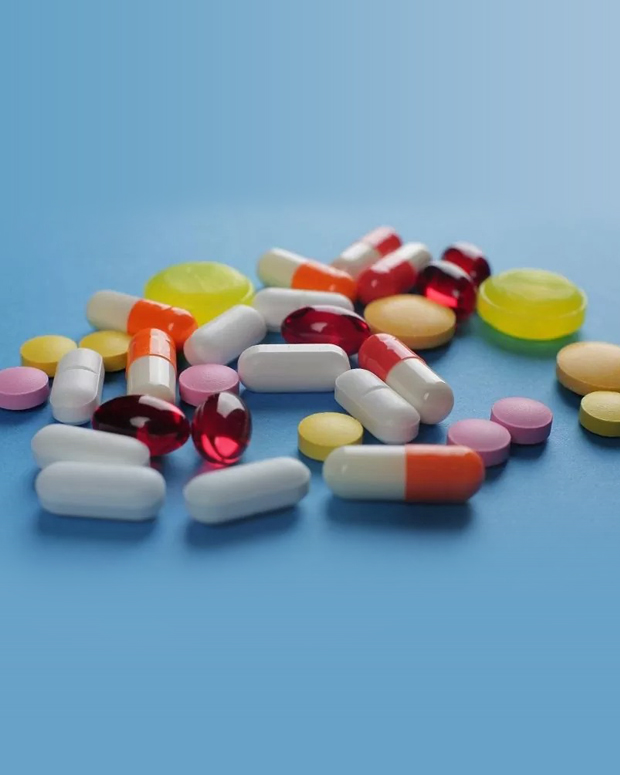
Seven Medications with Oral Health Effects
For decades, dental and medical professionals have understood the connection between oral and general health and implemented it through complete health dentistry. Through extensive research, clinical trials, and experience, they found that many medications for various health conditions affect one's oral health. It is for that reason that dentists need to know a patient's medical history as well as a list of all medications they are taking.
Understanding the oral-systemic link and medications that affect both medical and dental conditions can significantly enhance a patient's well-being. We can also alter certain medications to fit the patient's needs and help curb their symptoms or side effects. Complete health dentists can offer guidance in navigating conditions and prescribe appropriate dental medications.
Complete health dentistry information is available at Burtonsville Dental Suite in Burtonsville and the surrounding area. Our staff can help you better understand the oral-systemic health connection. Call us at (301) 421-1300 to schedule a consultation appointment today.
Cancer Medications
Cancer and chemotherapy medications can affect the teeth, gums, and jawbone. The American Dental Association (ADA) found that chemotherapy medications cause soft tissue reactions such as the development of oral sores, inflammation, and discoloration of soft tissues in the mouth. These reactions can lead to dry mouth syndrome, a condition that reduces the amount of saliva the mouth produces and can result in tissues becoming irritated and inflamed.
Dry mouth irritation can eventually lead to tooth decay, tooth loss, and gum disease as there is not enough remaining tissue in the gums. Drinking plenty of water and chewing sugarless gum can enhance saliva production and relieve some of the symptoms associated with dry mouth. Saliva substitutes are also effective in combating dry mouth.
“Dry mouth irritation can eventually lead to tooth decay, tooth loss, and gum disease as there is not enough remaining tissue in the gums.”
Behavior or Mood-Altering Drugs
Psychoactive medications refer to drugs that change the brain's function and alters a person's perception, mood, cognition, consciousness, or behavior. These medications include, but are not limited to, antidepressants, anti-anxiety, stimulants, antipsychotics, and mood stabilizers. Behavior and mood-altering drugs can cause dry mouth syndrome and increase the risk of tooth deterioration.
Dry mouth syndrome leads to tooth decay, tooth loss, and gum disease because of reduced saliva production. According to Better Health, lack of sufficient saliva production inhibits saliva from:
- Reducing the population of bacteria in the mouth
- Neutralizing mouth acids that cause tooth decay
- Re-mineralizing, which repairs tooth enamel (the hard surface layer that protects the tooth) that has been damaged by acids
- Clearing food particles from the teeth and gums
“Behavior and mood-altering drugs can cause dry mouth syndrome and increase the risk of tooth deterioration.”
Medication for Diabetes
Diabetes medications can alter a patient's sense of taste, known as dysgeusia. According to WebMD, dysgeusia can make food taste different or cause a metallic, salty, or bitter taste in your mouth. Taste changes can lead to insufficient nutrition due to a lack of taste and appetite, which may increase oral conditions.
Periodontal disease is the most common dental disease affecting those living with diabetes, affecting nearly 22% of those diagnosed. With age, diabetic patients experience poor blood sugar control, increasing their risk of gum disease that can also affect their ability to control blood sugar levels. Gum problems make diabetes harder to control because the patient is more susceptible to infection but less able to fight it. Treating the gums, applying a meticulous oral regimen, and having regular professional deep-cleanings can help curb and even prevent oral conditions and stabilize blood sugar levels.
“Gum problems make diabetes harder to control because the patient is more susceptible to infection but less able to fight it.”
Regulation Medication
Cardiovascular
Thyroid
“Certain regulatory medicines, including cardiovascular medications, cause gum enlargement, also known as gingival overgrowth.”
Keeping Mouth Healthy While on Medication
It is important to know and understand the side effects resulting from a particular medication and how to reduce or eliminate them in an effort to maintain good oral health. Taking appropriate hygienic measures also decreases many general health symptoms as much of the bacteria in the mouth is cleared before entering the body.
Depending on the health condition, complete health dentists can offer insights on how to relieve dry mouth, enlarged gums, abnormal bleeding, taste changes, tissue reactions, bone loss, discoloration, and thrush infection. In most cases, patients cannot decide against taking medications, but dentists may lower their dosage or alter the medication to suit their oral needs. Patients should seek medical and dental advice regarding medications while also maintaining a proper oral hygiene regimen.

